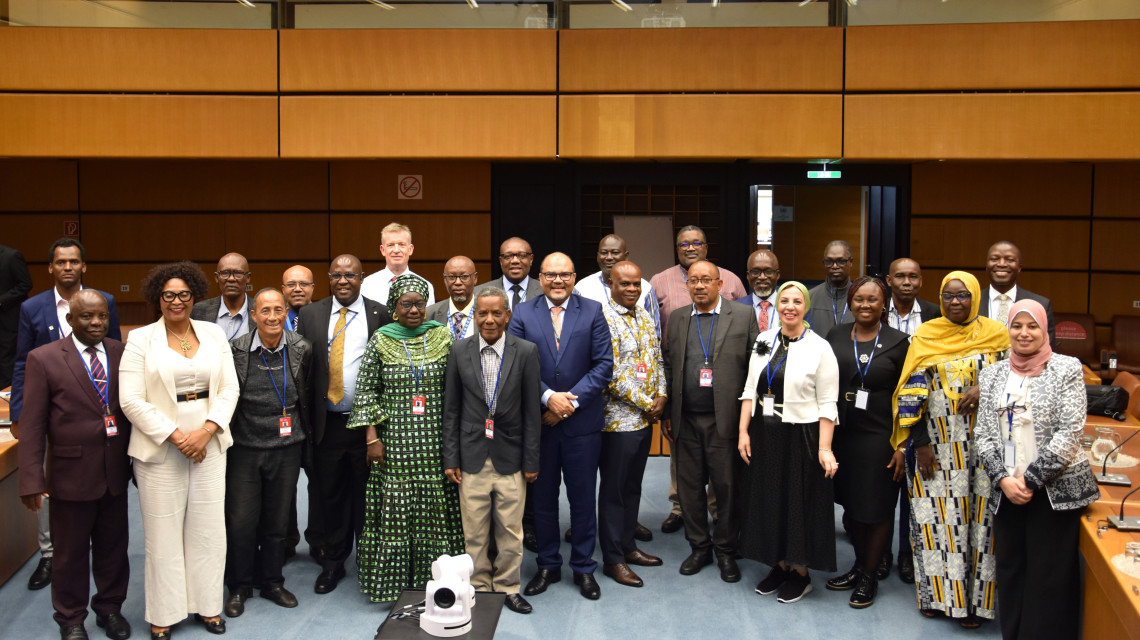The pressing need for human resource development in Africa's nuclear sector was addressed by experts at a high-level dialogue held during the IAEA's 68th General Conference. The event, titled 'Addressing Human Resource Development Needs in Nuclear Science and Technology,' explored strategies to enhance training at African universities and equip the next generation of nuclear scientists.
Africa's vast potential in nuclear science and technology presents significant opportunities to transform sectors like energy, healthcare, agriculture and industry. However, realizing this potential depends on developing a critical mass of skilled professionals to lead Africa's growing nuclear industry. At the event opening, panellists emphasized the demographic opportunities in Africa. Shaukat Abdulrazak, Director of the IAEA Department of Technical Cooperation Division for Africa, pointed out that by 2050 half of Africa's population will be under 25 years old. "We need to provide the younger generations with the necessary training to apply advanced technology effectively," Abdulrazak said.
Ambassador Ouattara of Burkina Faso provided a real-world example of the impact of IAEA training, highlighting how IAEA-trained experts have played a crucial role in addressing national challenges while ensuring the safety and security of their work. Ouattara introduced three doctors present in the room who exemplify medical leadership in Burkina Faso through their application of nuclear medicine, noting that these professionals have achieved excellence in their field thanks to the training they received from the IAEA. Ouattara's testimony underscored the value of IAEA support in building a sustainable and skilled nuclear workforce in Africa.
A major theme of the dialogue was the need to enhance postgraduate academic training in nuclear science. By improving university programmes and research opportunities, African universities can better prepare the next generation of nuclear scientists.
"A degree from an African university should be as valuable as one from any high-income country," said Dina F. Husseiny Salama, from Egypt's Misr University for Science and Technology. She emphasized the importance of updating curricula and investing in skilled personnel to match international standards.
In addition to strengthening academic programmes, the panellists highlighted the importance of hands-on training, including internships, research opportunitiesand exchange programmes. These initiatives help bridge the gap between theoretical knowledge and practical application, enabling Africa to develop a workforce equipped to meet its nuclear energy and development needs.
The side event panellists stressed the importance of regional partnerships in scaling up nuclear capabilities across Africa. Participants heard how cooperation among African countries and with international partners, such as the IAEA, is crucial for knowledge exchange and resource-sharing.

Participants at the side event Addressing Human Resource Development Needs in Nuclear Science and Technology during the IAEA's 68th General Conference. (Photo: R. Fraga/IAEA)
"Focusing on human resource development has been a priority for AFRA," said James Kahindi, Chair of AFRA's High-Level Steering Committee. He elaborated on how the African Regional Cooperative Agreement for Research, Development and Training related to Nuclear Science and Technology (AFRA) conducts needs assessments to target training where it is most needed, particularly through South-South cooperation.
Director Abdulrazak also called for stronger collaboration among countries, emphasizing the need to bring all relevant stakeholders to the table. He urged a re-orientation of strategies, focusing not only on doctoral degrees but also on strengthening middle-level colleges and technical training institutions. Abdulrazak further highlighted the importance of involving marginalized groups, and the need to enhance synergies between less developed and more advanced countries. "We must adjust our strategies to ensure inclusive and comprehensive development across the entire value chain," he said.
The IAEA, through its technical cooperation programme, plays a central role in delivering training and capacity building support to African countries, with 37 per cent of recipient countries located in Africa. The programme emphasizes human resource development through education, training and fostering strategic partnerships for regional cooperation.






